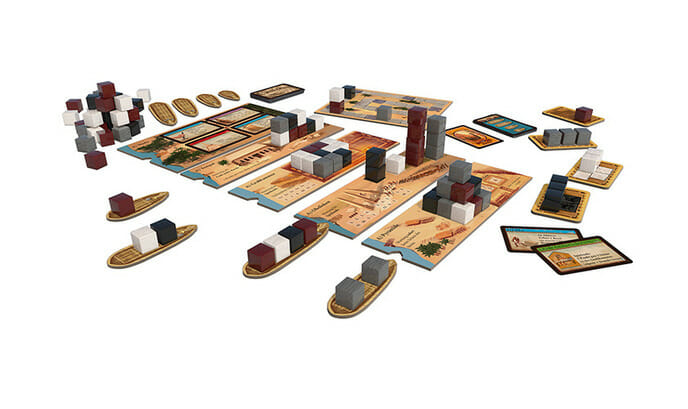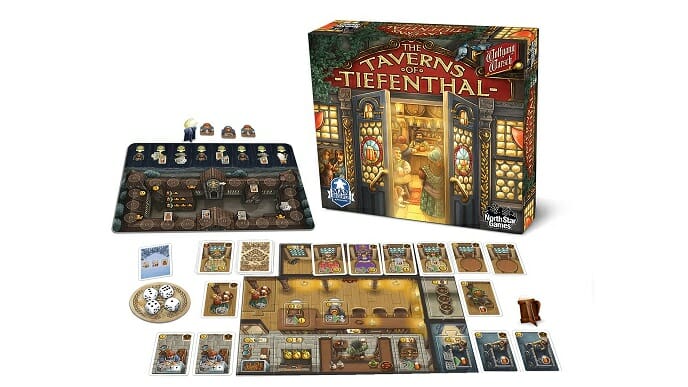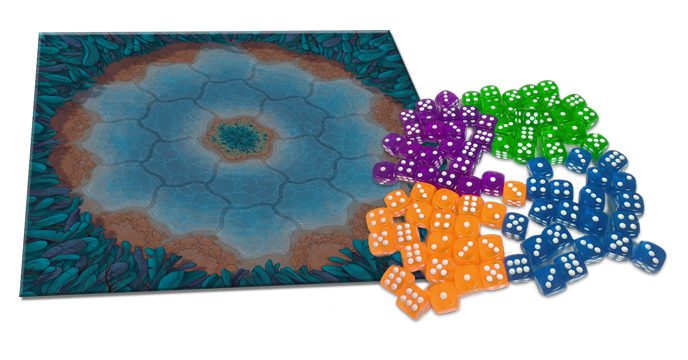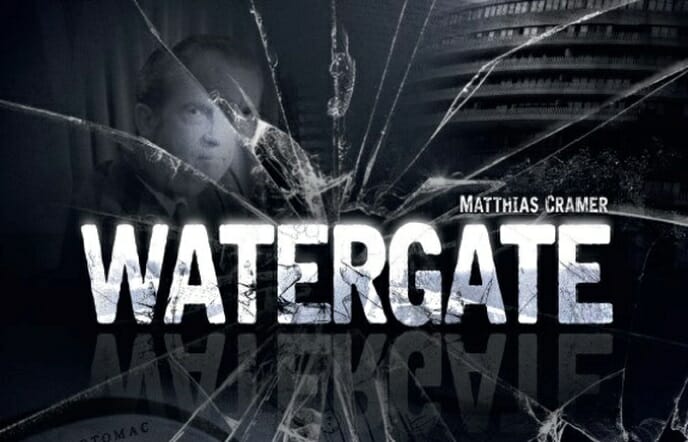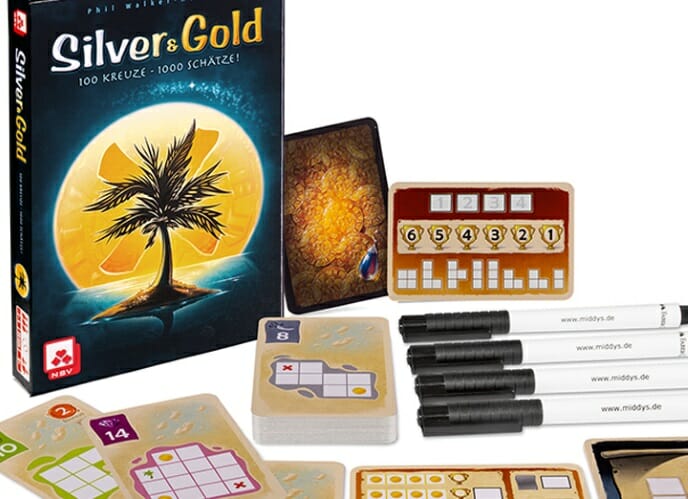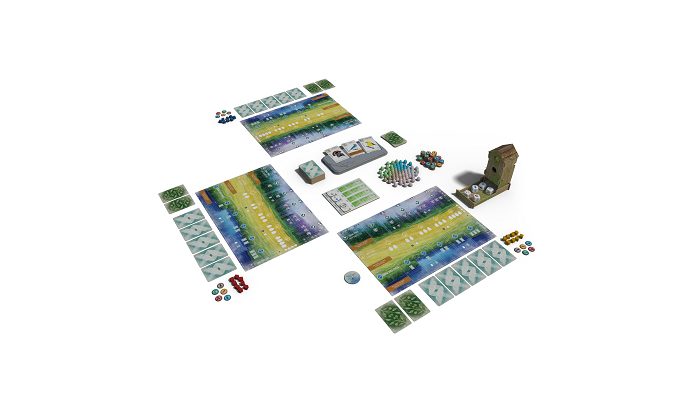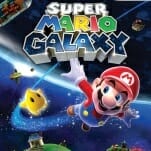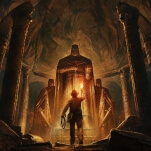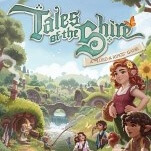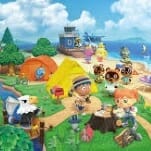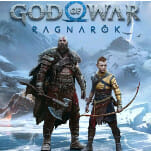The 10 Best Board Games of 2019
All images courtesy of each game's publisher.
This was an exceptionally good year for new tabletop games, and I say that knowing, with regret, that there are so many more games I haven’t even gotten to try. I’m sorry Maracaibo, and my apologies to Barrage. Please give my regrets to the Adventure Games series, and tell Parks I’ll play them some time soon. In the meantime, however, here are my top 10 new games of 2019, with a few honorable mentions at the top as well.
Honorable mentions: Point Salad, Realm of Sand, Corinth, Villainous: Evil Comes Prepared.
10. Ankh’or
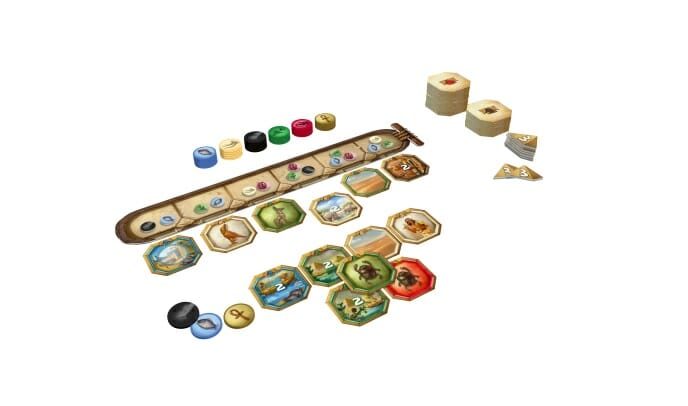
The second game in Space Cowboys’ small-box series aimed at two players—the first was a reissue of Jaipur, the best pure two-player game out there—Ankh’or plays two to four, but it works best with two. You can take one of just two actions on your turn: take three of the Splendor-like tokens you use as currency, or use them to buy one of the tiles available in the six slots in the market, the prices of which are set randomly at the start of each game. You’ll place 13 tiles in front of you over the course of the game, scoring points for creating adjacent groups of the same color or the same animal icons. You can also use orange ankh tiles to reset the market, filling in empty slots and moving tiles already there to the cheapest slots on the left, or to move a tile you’ve already placed. The rules are simple but there’s enough strategy required here to engage an experienced player.
9. Tapestry
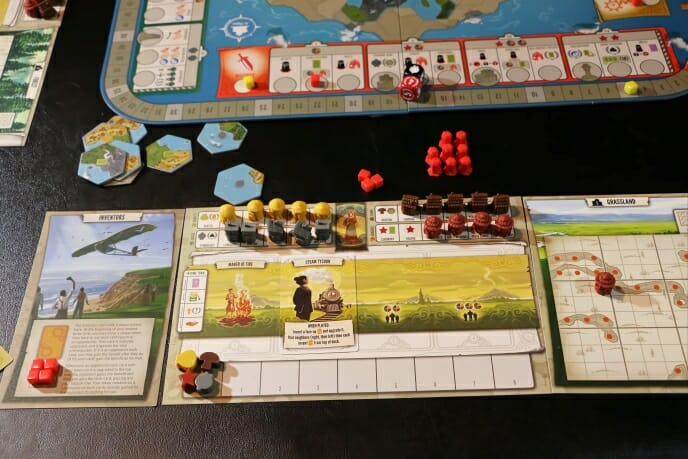
Every Jamey Stegmaier release comes with plenty of fanfare, as all of his previous games, including Scythe, Viticulture and Charterstone, have been well-received and come with high-quality art and components. Tapestry is his attempt to create a civilization-building game that is entirely playable in under two hours, and he mostly succeeded, although the gameplay itself doesn’t have the ‘feel’ of a typical civ-builder. Players collect resources to move themselves up four tracks around the main board, while also exploring new territories on the central and building houses (or, eventually, monuments) on their personal cities. The game forces you to make choices because your means are limited and the game itself doesn’t last long enough for you to do everything. It’s not a replacement for crunchier civ-builders, but can scratch that itch in a shorter playtime, with a rulebook that runs just four pages and lets you start playing far more quickly than most games in its genre.
8. Res Arcana
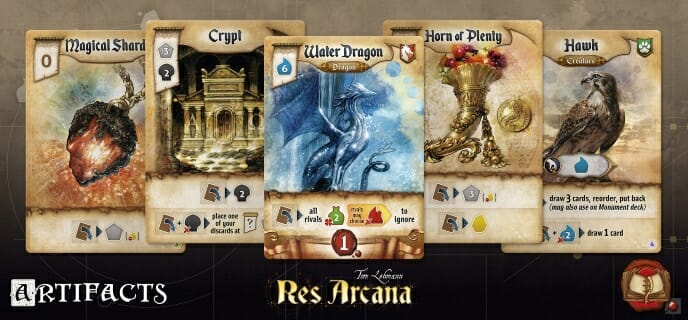
Tom Lehmann’s hit game still kind of weirds me out a little, because you start the game with a deck of eight cards … and that’s it. You don’t get more cards. You only get to draw one new card from your deck each turn unless you get a special ability somewhere else to draw another one. It makes me all twitchy to not automatically refill my hand at the end of each turn. We are gamers. Refilling our hands after each turn is just how we do. Yet Res Arcana isn’t a deckbuilder or hand management game at all: it’s an engine-builder, and the challenge is to build the best engine you can with the cards you get. Cards help you get the five “essences” that you spend to buy more cards or the more potent ‘places of power,’ which help you rack up a lot of victory points, or monuments, which are worth 1-3 points and usually give you a solid extra ability. When any player reaches 10 points, the game ends, and whoever has the most points wins. It plays in about an hour and there are enough cards to force some player interaction that it doesn’t have to be just a glorified solitaire experience.
7. Hadara
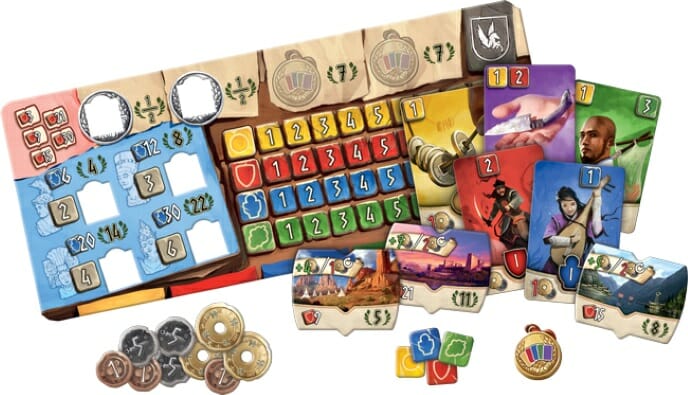
A great card-drafting game with a hint of 7 Wonders but a theme all its own, Hadara gets the civ-building card game mechanic on to actual boards, as players choose their cards from the central board and use them to move up four tracks (income, military, culture, food) on their own boards while building card tableaux for more points and money. The game has three rounds for different eras, with cards getting more expensive and more powerful in successive rounds. There are five decks for each round in different colors, and on each turn in the first phase of a round, you’ll draw two cards from one of those decks, playing one and discarding the other to the board. In the second phase, however, players will get to draw from the discard piles from the first phase. After each phase, you get income and may buy statues (with culture) or claim colonies (with military) for points and to move up resource tracks; at the end of each round, you have to have one food for each card in your tableau, and you can buy a ‘medal’ to gain points at game-end for your space on each track or for each set of cards in all five colors. Those medals were rather unthematic, but the rest ties together well and the simultaneous turns keep the games moving quickly. It’s not just like 7 Wonders but hits a similar sweet spot.
-

-

-

-

-

-

-

-

-

-

-

-

-

-

-

-

-

-

-

-

-

-

-

-

-

-

-

-

-

-

-

-

-

-

-

-

-

-

-

-

